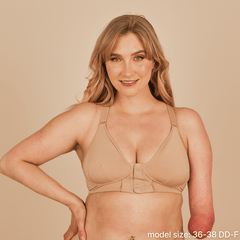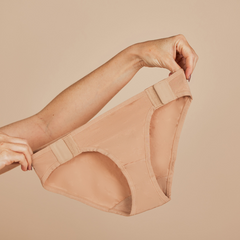This is a personal account and not medical advice in any way shape or form. If this can help even one person, then I will be happy. If you are interested in understanding your fertility or whether egg freezing is right for you, please consult your physician.

Egg Freezing Overview
What is egg freezing?
Egg freezing is a type of fertility treatment whereby an individual’s eggs are surgically removed and frozen, so that they can be used to have kids at a later date.
I was first introduced to the concept of egg freezing in September 2020 when a fertility clinic did a presentation for the women in my masters program. That session, with its grim fertility statistics, alongside the book I was reading at the time, The Defining Decade by Meg Jay, spooked me into thinking seriously about my fertility and family planning.
I’d been diagnosed with Polycystic Ovary Syndrome (PCOS) a year earlier, and while my symptoms were mild, I didn’t know whether it would one day affect my fertility. I also hadn’t been with my now partner at the time, and I never wanted to feel like I had a ticking clock on my ability to have kids.
What are the benefits of egg freezing?
The benefits of egg freezing seemed clear: time and freedom. You get more time to figure out if and when to have kids, because it extends your chances of conceiving past your own biological clock. It also removes some of the pressure of needing to find a person you want to have kids by some arbitrary age.
An added benefit to egg freezing is that it also makes it possible to have biological kids without needing to carry them yourself if it could put you at risk or cause body dysmorphia. That’s because families can opt for a surrogate, if they can afford it.
Who is egg freezing for?
Egg harvesting and removal is also the first step of in vitro fertilization (IVF), so it’s commonly used by single women and couples with fertility challenges.
For disabled women and those with chronic or immune illnesses, egg freezing can also be a pathway to kids. Not everyone needs it, as it depends on the condition, but it’s important to be informed. For example, egg freezing is often recommended for women who have cancer and are about to undergo chemo, since chemo can reduce or eliminate a woman’s fertility.
Others who have autoimmune disorders may also benefit from egg freezing in their 20s as their condition may impact their fertility. For example, women who have lupus, rheumatoid arthritis, endometriosis, multiple sclerosis (MS), etc.
Disabled women’s fertility is not a topic that has been widely discussed or studied unfortunately, but one that needs to be. So far, what’s available is mainly anecdotal evidence from women, who often become educational and cautionary tales for others.
What is the best age to get your eggs frozen?
In terms of timing, the main recommendation is to get egg freezing done as young as possible to increase your chances of conceiving through a fertility treatment. There is no egg freezing age limit, but the greatest chance of survival will generally come from eggs extracted before a person turns 40.
The reason is that eggs decrease in quality over time, so a person’s eggs when they’re 27 are of better quality than when they’re 34. That means that the egg at 27 might have a greater chance of surviving the extraction, freezing, defrosting, fertilization, etc. process, leading to a viable pregnancy.
Because eggs may be lost at every step, it’s often recommended that women try and get out as many eggs as possible. For some, that might mean needing to do the treatment 2-3 times, although the “ideal” number of eggs is not based on hard science, just estimates.
My grandmother’s clinic has had plenty of cases where a woman only got 1 or 2 eggs out through the egg retrieval process and she was still able to have a successful pregnancy. Conversely, they’ve seen cases where women had 20 eggs and none worked out.
It’s highly variable depending on the person, so it’s important to understand yourself and what you want out of the process. Is it a backup plan (like me)? Is it the highest possible chance of a pregnancy?

My Egg Freezing Journey
The Logistics: Cost and Clinic
For me, the first step was figuring out how I could afford the procedure. The cost of egg freezing is ridiculously expensive. A single treatment costs $12-15K including the drugs and there’s a yearly maintenance fee.
There are a few financing options now, such as loans, but I was already taking out loans for school and was not interested in adding to the debt.
I checked if egg freezing was covered by my insurance, but they only covered it if I had been trying to conceive for a year and had failed to get pregnant.
It then occurred to me that I could likely get it done in Argentina. I’m originally from Argentina and a lot of my family still lives there. Argentina has wonderful healthcare, public and private, and the exchange rate from dollars to pesos would work in my favor.
I was right, and the entire treatment was estimated at about $1,500, depending on the exchange rate and the amount of medication prescribed.
With the pandemic raging and my heavy workload, the timing became tricky, but at some point it was important to just put it on the calendar and commit to it.
All this in place, I talked to my grandmother Graciela, who has worked in a fertility clinic for the last 30 years and who was excited to help me. It’s extremely lucky of me to her, since it’s not something afforded to most people, especially for medical tourism.

My grandmother Graciela and I on my first day
The Prep Work
My grandmother connected me with a great doctor at her clinic, so I could learn more about the egg freezing process from him. In our first zoom call, he walked me through the benefits of egg freezing and told me the studies I needed to get done: bloodwork and a transvaginal ultrasound.
Had I been on my old private insurance at the time, it would have been a breeze. However, my period is irregular (joy) and I was transitioning to the ACA. This led to four months of stress as I tried to get the studies all scheduled and done during days 2-5 of my period. Apparently, that’s the best time to measure your hormone levels and everything else.
Through sheer luck, I got the bloodwork done in time and everything came back normal. The ultrasound didn’t work out timing-wise, but the doctor said that we’d just do it in his office when I arrived in Buenos Aires.
The Process
To start the egg freezing process, it’s recommended that you also begin between days 2-5 of your period. I was given progesterone only pills for the weeks leading up to my trip, so that the timing would line up, and it all worked out.
The doctor did my first transvaginal ultrasound and counted the number of follicles in my ovaries. That’s where the eggs would be harvested from, so the greater healthy follicles the better.
For context, a transvaginal ultrasound is similar to a pap smear. They insert a long wand into your vagina to do an ultrasound and see the inside of your ovaries. Fascinating, but as a non-medical person, it all looked the same to me.
The doctor then prescribed a drug that I needed to inject myself with every day to stimulate egg production in my ovaries. He mentioned that given my age (28), there was a high chance my ovaries would get overstimulated from the drug, which could result in some discomfort, so we’d try our best to avoid it.
I got an appointment to come back in five days and after that, we did a transvaginal ultrasound every other day to measure my growing follicles. We added a second medication at that point that would also stop my ovaries from releasing the eggs.
There’s nothing sadder than going through this entire process only to find out at the end that your body released the eggs you’d worked so hard to grow and collect.
This is the time to note that I feel very lucky about my experience. I didn’t feel any side effects from the medication other than some mild bloating. Many women report a range of less fun symptoms including pain, mood swings, headaches, etc. It all depends on how your body handles hormones and the drugs you’re injecting into yourself every day.
At that point, I was injecting twice a day. One was a pen that was quite easy because it already came loaded with the drug. The other drug was reminiscent of my high school chemistry class and reminded me why I never enjoyed science. Mixing it was okay once you got the hang of it, but I was so stressed the first day I had to do it that I couldn’t tell if my heart palpitations were because of the drug or my nerves.
Speaking of heart palpitations, I was required to get an electrocardiogram to make sure my heart was healthy and more blood work before the extraction. This was to understand my body’s state before the procedure and likely inform the anesthesiologist and other doctors.

The fun last two shots I had to take
Two days before the final procedure, I ran out of the two initial drugs and was given a final one, which also inhibited ovulation. It was two syringes that you had to inject almost simultaneously, one on each side of your belly button. That’s where I’d been injecting everything already, so the area was fairly bruised and tender by that point.
Side note: Massive kudos to the women who have to inject themselves daily or are constantly in and out of a hospital. Society does not respect them enough. Even though the pinch of the needle only lasts a few seconds, it still HURTS. Every time.
The Extraction
I was given a series of instructions to follow for my 9:30am appointment. I couldn’t eat or drink anything up to 8 hours before, nor could I wear jewelry, nail polish, or perfume. I succeeded in following these parameters, but not without a fun number of stress dreams the night before where I missed the appointment, forgot not to drink water, or my body prematurely released my eggs.
Leading up to the procedure itself, I was naked under a hospital gown, laying down on a bed, under a nice heavy blanket. The anesthesiologist hooked me up to an IV drip and the attending physician asked me what music playlist I wanted to listen to.
What was the right vibe for this? An egg themed playlist? Taylor Swift? Rhianna? I settled for a Latin Hit Mix featuring Maluma, Shakira, Becky G, and others.
The procedure itself was a breeze, mainly because I was put under general anesthesia. I’d never had anesthesia before, but was told it would feel like a nap. I can confirm that this is the case and it was great.
They extracted 11 eggs, freezing 9. I was aiming for 8, so as not to be disappointed, and felt happy that we got a bonus one.
The reason they froze fewer than they extracted is because those other two were not mature enough. This means that they wouldn’t be viable for a pregnancy, so no use storing them now.
It’s also important to note that in Argentina, they freeze eggs in liquid nitrogen. They have a lot of power outages, depending on the season, so this was a really important point of inquiry for me. I wouldn’t want to go through this whole process only to have my eggs mistakenly unfreeze and be unusable.
In total, the egg freezing procedure took 10 days from my first appointment to the day of the extraction.
The Recovery
It’s now been a couple days since the procedure and this part has been a bit worse than the actual preparation. I can’t exercise for four days and the doctor said I shouldn’t strain myself mentally. Why? Unclear, but I’ve chosen it to mean that I should nap a lot and rest.
I also ended up hyperstimulated, which the Mayo Clinic describes as follows, “Ovarian hyperstimulation syndrome (OHSS) is an exaggerated response to excess hormones… OHSS causes the ovaries to swell and become painful.”
For me, it means that it’s a bit uncomfortable to sleep at night and every time I need to go down the stairs is an adventure. My stomach / uterus area is also protruding more than normal and a few areas feel tender. Luckily, it’s only a temporary condition that should go away naturally after I get my period again. I’m also on a drug for it that will last me a week.
Takeaway
Am I happy that I did it? Yes, absolutely. I also recognize that I’ve had an easier time of it than a lot of women, since I didn’t have a negative reaction to the drugs. The procedure has given me peace of mind and I would recommend that women who have endometriosis, thyroid autoimmunity, lupus, rheumatoid arthritis, etc. look into egg freezing as a potential option for them to achieve their family planning goals.



